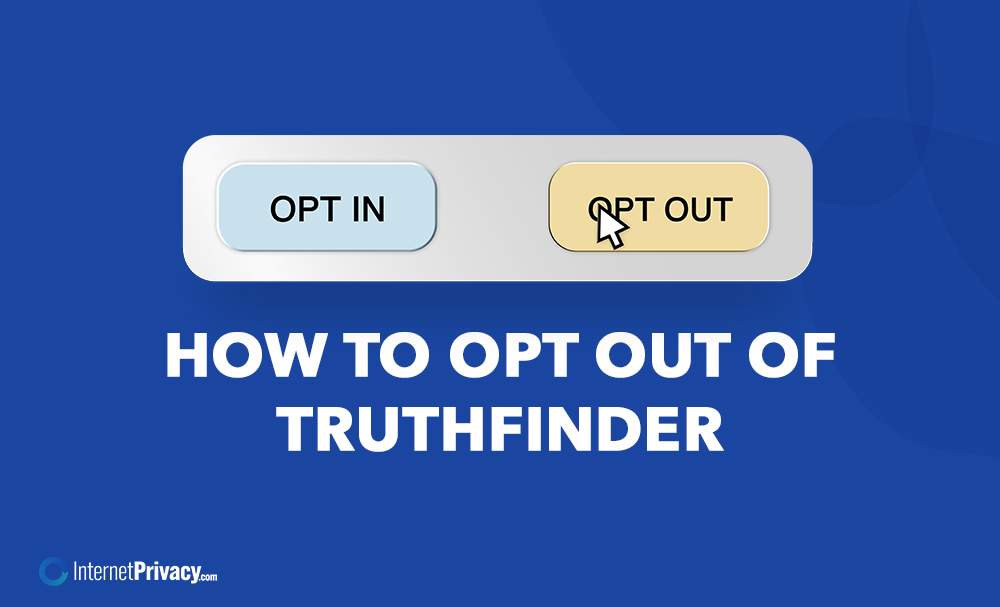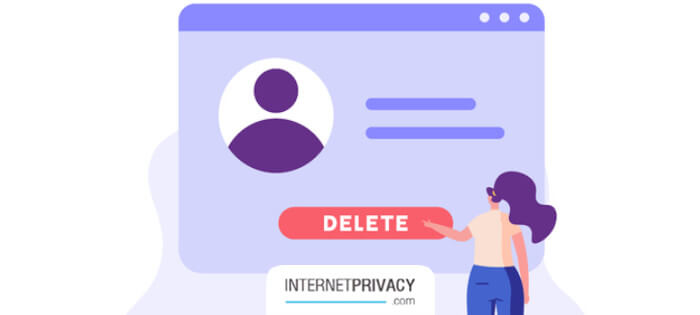How To Opt Out of TruthFinder

Wondering how to opt out of TruthFinder? Learn everything you need to know about the process in our comprehensive guide below.
Accessing information has never been easier. While search engines like Google allow hundreds of millions of people to search for almost anything under the sun, there are also people search websites, such as Truthfinder, that can help internet users search for private data about people.
If you can search or locate someone through these people search sites, chances are that you can be found in the same way as well. It may be uncomfortable to know that you or a loved one has personal info included on people search websites. Because much of the information available from data broker databases is part of the public record, though, almost any internet user can discover sensitive data about you.
Before moving on to what TruthFinder really is and how you can opt out of the site, it’s important to know the nature of these people search sites.
We offer monitoring and removal of your personal information online so you can better protect your identity. Contact us today at 866-349-0130 to learn more.
What Are Data Brokers?

A business that operates behind a people search site is called a data broker or information broker. These businesses survive and thrive on the personal information of average internet users. In a nutshell, this is what an information broker does:
- Collect info about you from different sources
- Create a detailed profile of who you are
- Offer your profile in their public records
Some commonly used data broker sites are:
Many internet users may not know that these and other data brokers even exist. The truth is, though, that these businesses are rapidly growing.
Is a Consumer Reporting Agency Considered a Data Broker?
Considering the nature of the data brokerage industry, you may wonder if consumer reporting agencies are considered data brokers, too. Before answering that, it is important to know what consumer reporting agencies are and what they do.
Unlike people search websites and even mugshot websites, consumer reporting agencies provide consumer reports to other businesses. These reports include information such as consumer credit data and employment history.
It is important to note that, unlike people search websites, consumer reporting agencies require Fair Credit Reporting Act (FCRA) compliance. The FCRA ensures that such agencies maintain fairness, accuracy, and privacy of the information included in their reports. That means they can’t gather public data from anywhere they can find it, like data broker search sites do.
While some service providers are considered both data brokers and consumer reporting agencies, not all consumer reporting agencies are data brokers. Additionally, TruthFinder is a data broker but not a consumer reporting agency.
What Kind of Information Do Data Brokers Gather?
Most often, the information that a data broker collects from public sources and internet databases includes personal information. This typically includes the following:
- Complete names
- Age and birth date
- Location and past addresses
- Contact information
- Education history
- Occupation history
- Income and other financials
- Court records
While not every people search site will have court records, mugshots and criminal history information, some will provide this information on top of basic public data. This is especially true for mugshot sites, which also provide access to criminal records and arrest records.
Considering their access to arrest records and booking photos, these types of information brokers can be very intrusive. And unfortunately, the reality is that these businesses are completely legal.
Our internet privacy experts will protect you from identity theft, phishing attacks and other online threats. Call us at 866-349-0130 for more information.
What You Should Know About Truthfinder

Like the other search sites we’ve mentioned, TruthFinder allows users to search for information about almost anyone. Since TruthFinder is a data broker, it has a comprehensive database of public information about a large number of people.
What Information Do TruthFinder Profiles Include?
Like several data broker sites, TruthFinder shows basic personal data about individuals, such as:
- Name
- Age
- Birthdate
- Address
- Contact details
- Possible relatives
Aside from this public data, TruthFinder can also reveal these types of public records:
- Assets
- Arrest records
- Bankruptcies
- Permits for concealed weapons
- Census data
- Criminal records
- Corporate filings
- Dating profiles
- Employment background
- Educational background
- Address history
- Possible neighbors
- Professional licenses or certifications
- Sex offense database info
- Social media accounts
- Trademarks
Considering this, TruthFinder reports are actually quite comprehensive. You can find out so much about a particular person by using the people search site. In the same way, if you are listed on the platform, others can find out quite a lot of information about you.
Where Does TruthFinder Get This Information?
You may be wondering where TruthFinder gets all of this information. What are TruthFinder’s sources?
Their sources comprise a number of public records, including:
- Social network data
- Public records (local, state, federal)
- Criminal records
- Financial entities
- Census data
TruthFinder scrapes through all of these independent sources to come up with an in-depth report on an individual. From there, any TruthFinder report can be accessed by any visitor to the people search site.
We work on behalf of our clients to monitor their online data and remove personal information from the internet. Give us a call at 866-349-0130 to learn more.
Protect Your Private Information
What if your personal data is already in the TruthFinder database?
Your online exposure goes up, and your online privacy goes down. Furthermore, you’ll be more at risk of having your data leaked during data breaches, and you could also be the victim of identity theft.
Luckily, whether you have a Truthfinder account or not, you can remove your personal data from the site.
How To Submit an Opt-Out Request On TruthFinder
TruthFinder’s opt-out form will allow you to remove your personal data from the site. Here’s what to do.
Step 1: Navigate to the correct page
Go to the TruthFinder homepage, then scroll to the bottom. Click the Do Not Sell or Share My Personal Information link in the footer.

Step 2: Head to the site’s data removal services
In the Public Data Tools section on the right side of the page, click the Suppress Your Public Data link. Then, click the Manage My Suppression Rules link.


Step 3: Finish the email verification process
Enter your email address and click Continue. Then, check your email. Open the message from TruthFinder (or PeopleConnect) and click the Verify Email link.


Step 4: Fill out the data removal form
Enter your birth date, then click Continue. Next, enter your full name, check the This Is My Legal Name box, and click Continue.


Step 5: Locate and select your record on TruthFinder
If you see a record that has your information, click on it and then click Continue. Assuming your email address matches the one in the record, click Continue.


Step 6: Finish the data removal verification process
Open the Desired Behavior drop-down menu and choose Suppressed, then click Save. You’ve now completed the TruthFinder opt-out process.

3 More Ways To Protect Your Internet Privacy
While performing a TruthFinder opt-out may indeed be helpful in protecting yourself online, it is not the only way. To enhance your internet privacy, you can try out these other methods, too:
- Keep your personal information private. Make sure that your data is stored privately, and always avoid public storage. Additionally, adjust your accounts’ privacy settings, and don’t publicize your contact information.
- Avoid unsafe websites. Unsafe websites can compromise your overall security. If you have doubts about a website’s security, it’s better to avoid it altogether and opt for the websites you know are secure.
- Make use of anonymous search engines. There are certain search engines that do not keep track of or share your browsing history. These could be a good option for you to boost your internet privacy.
Do you need help removing your personal data from people search databases and online search results? Get started for free with a quick personal data scan.
Frequently Asked Questions About TruthFinder
How long does it take to have my report removed?
After completing the TruthFinder opt-out procedure, the site will process your data removal request within the next 48 hours.
Is this the only way to remove my information from TruthFinder?
Instead of going through the opt-out process we outlined above, you can try to contact TruthFinder directly to submit your removal request. Be sure to include your name and a link to your record.
Is TruthFinder legal?
You may wonder if information brokers such as TruthFinder actually operate legally. The answer is yes, these brokers are legal and legitimate businesses.
Contact the Experts at Internet Privacy Today
Having your personal details on the web can put you and your family at risk. With the help of professional content removal and digital privacy solutions, you can protect your online reputation and your data from damage or loss.
Contact us today by calling 866-349-0130 to speak with an online privacy expert.





